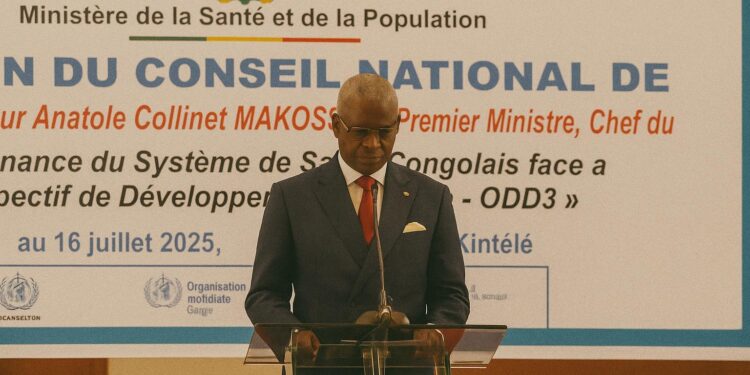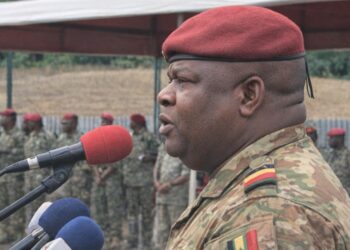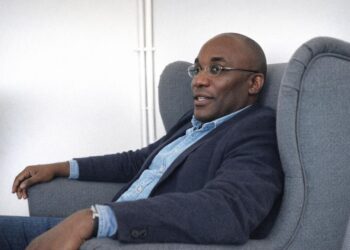Kintélé Conclave Signals Renewed Political Will
The second ordinary session of Congo-Brazzaville’s National Health Council convened from 16 to 18 July 2025 at the Kintélé International Conference Centre, gathering cabinet members, provincial administrators and international partners under the chairmanship of Prime Minister Anatole Collinet Makosso. By opening the forum in person, the head of government offered an unmistakable signal that health remains an executive priority, a stance consistent with the administration’s post-pandemic recovery portfolio. The presence of the World Health Organization’s representative, Dr Vincent Dossou Sodjinou, further embedded the meeting in the multilateral architecture that frames the Sustainable Development Goals.
Strategic Governance for Universal Health Coverage
Framed around the theme of governance and SDG 3, deliberations probed how stewardship structures might be recalibrated to accelerate Universal Health Coverage. Delegates noted that the 2018 national health policy already identifies governance as a core pillar, yet uneven execution across districts persists. In response, the Council endorsed a multi-tiered accountability matrix that assigns outcome-based targets to regional directors while reserving strategic oversight for the central ministry. Similar dual-track models in Rwanda and Cabo Verde have yielded measurable efficiency gains, suggesting the Congolese adaptation is empirically grounded (WHO, 2024).
Financing Innovations and Fiscal Transparency
Financing emerged as the fulcrum upon which most recommendations turned. According to World Bank figures, present public-health outlays represent roughly 4 percent of GDP, below the 5 percent benchmark endorsed by the Abuja Declaration (World Bank, 2023). The Council therefore urged the earmarking of revenues from innovative instruments—carbon credits, mobile-money levies and portions of hydrocarbon royalties—to stabilise health funding. Equally salient was the insistence on transparent tracking of the internally generated fees collected by hospitals, a measure designed to ease donor apprehension and satisfy domestic calls for equity. Finance-ministry observers present in Kintélé intimated that a dedicated health-sector treasury account could become operational by the 2026 budget cycle.
Decentralising District Health Services
Participants converged on the view that district-level deficits represent the bottleneck most visible to citizens. With some rural facilities operating on annual allocations of barely 30 million CFA francs, the Council recommended that local authorities ring-fence 15 percent of municipal budgets for frontline care. The Minister of Health, Professor Jean Rosaire Ibara, argued that empowering district managers with executable resources would be ‘nothing less than an investment in social cohesion’. Capacity-building for managerial and biomedical staff is to proceed in tandem with the refurbishment of dispensaries drawing on a new equipment line negotiated with the African Development Bank (AfDB, 2025).
Scaling Emergency Preparedness with One Health
The Council’s discussions unfolded against the backdrop of lingering memories of COVID-19 and recurrent Chikungunya alerts. Delegates embraced a One Health doctrine that integrates human, animal and environmental surveillance—a philosophy already piloted in the Cuvette-Ouest region. A multisectoral coordination cell reporting to the Prime Minister’s Office will henceforth oversee pre-positioned emergency stocks and a digital risk map updated quarterly. The approach echoes recommendations in the latest Africa CDC strategy paper and situates Congo among early continental adopters of the model (Africa CDC, 2024).
Regional Diplomacy and the SDG Horizon
Congo-Brazzaville occupies a pivotal corridor between Central and Southern Africa, and its domestic health advances increasingly carry diplomatic resonance. Neighbouring Gabon has already expressed interest in joint procurement of paediatric vaccines, while the Economic Community of Central African States is exploring a pooled emergency-logistics mechanism. Such overtures, delegates agreed, reinforce the logic that national health security is a collective good. In a closing address, Prime Minister Makosso remarked that ‘equity in health is not merely a moral imperative; it is the bedrock of regional stability’.
The Kintélé resolutions are slated for Cabinet consideration in September 2025. Should they secure full appropriation, the measures could place Congo on a trajectory to meet—or at least substantially close—the gap to SDG 3 by 2030. Observers note that the blend of political commitment, calibrated financing and evidence-based governance espoused at the Council aligns with international best practice. For a polity seeking to consolidate both economic diversification and diplomatic stature, a robust health system may well prove its most persuasive credential.











































